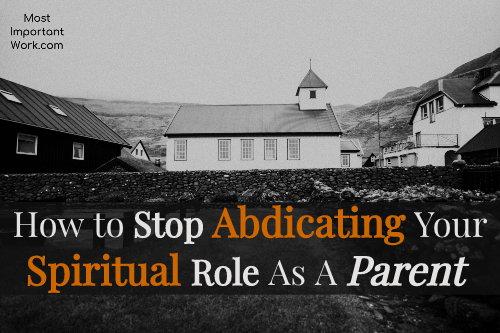
What To Do When Pain Smacks You In The Face
Reading Time: 5 min 44 sec
The pain hit like a sledgehammer, followed by the unmistakable realization that life would never be the same. I gulped back a sob and tried to breathe, my whole-body seizing, ready to crumble. I shook my head in bewilderment, as thoughts of grief, flooded my mind. I gasped, “Everything was fine just a few moments ago. How could this happen?!”
Pain is one of those unavoidable experiences that strike each of us with deadly accuracy. The loss of a loved one, the death of a relationship, or a dream, the end of a job, or even a cross country move can leave us reeling.
We stumble around in a fog, desperate for something that will stop the ache inside. We believe that if we can just find our new normal, maybe this debilitating pain will stop, or at least not punch us in the gut when we least expect it.
We self-medicate by binge-watching tv, finding comfort in food, spending long hours at work, living at the gym, or filling our calendars so full, you have to schedule a time to use the bathroom.
God invites us into something different.
He asks us to journey with him as he transforms the pain in our lives with the renovation of our souls.
So, how do we work with the Holy Spirit when pain smacks us in the face?
1. Stop Running
2. You Can’t Do This Alone
3. Rehearse God’s Faithfulness
4. Embrace Transformation

1. Stop Running
I remember as a little kid arguing with my mom over the removal of a band-aid. I was convinced that if she went slow and took it off bit by bit, it wouldn’t hurt nearly as bad as taking it off in one brutal swipe.
She tried to warn me, but I was determined, so I started to slooowly peel the band-aid off. With my whole body tense, I squirmed, yelled and did everything in my power to fight against a quick removal.
That agonizing band-aid experience was the longest two minutes of my life. ![]()
Just like the band-aid removal, when presented with agonizing situations, our first urge is to do anything that might minimize the pain. We drown our sorrows in every distraction that presents itself. We try to outrun, to bury, or do just about anything but face our pain.
Pain is like a disease, when suppressed, it just eats away at our souls. It spreads throughout our lives leaving nothing uncovered. It affects the quality of our relationships, our jobs, and our relationship (or lack thereof) with God.
If you want to find hope, healing, and rest, you have to stop trying to submerge your pain in a carton of ice cream.
“Pain insists upon being attended to. God whispers to us in our pleasures, speaks in our consciences, but shouts in our pains. It is his megaphone to rouse a deaf world.” C.S. Lewis
Attempting to conceal your pain only adds unnecessary grief and stress to your life. Taking the time to acknowledge your agony is the first step to healing.
Take a moment and ask yourself:
- In what ways am I trying to bury unresolved pain in my life?
2. You Can’t Do This On Your Own
As American’s we are obsessed with the need to control. We try to control our bank accounts, our kid’s futures, our food, and our wardrobes. And that’s just the tip of the iceberg.
We celebrate independence as a virtue. The phrases, “He stood on his own two feet.” “He pulled himself up by his bootstraps” shout we don’t need anything or anyone. We can do it all on our own.
We take that cultural lie into our relationship with God. “God helps those who help themselves” seems to be the common mantra of the American church. I’m willing to bet that some people would even think that’s an actual Bible verse.
And so, we press on, trying to control the pain and fix the situation, desperately trying to make our lives go back to normal. We fumble around in the dark with our limited knowledge, trying to be the god (small g) in our own lives. We are so quick to assume that God wound the clock and then left us to get the job done.
But God is calling us to a different type of life. A life of freedom, peace and rest. A life where we don’t have to carry around a huge weight of expectations or operate under the constant threat of failure.
Matthew 11:30 says, “I won’t lay anything heavy or ill-fitting on you.”
God in his infinite wisdom and love is encouraging us to surrender our need to try and control our world.
He is inviting us into a safe place, a place of vulnerability, a place of comfort, a place of lavish love. A place where you don’t have to have all the answers.
The weight of the world wasn’t designed to lay on your shoulders.
Like children who can play and move throughout their days in the comfort of their parent’s protection, God offers us that same benefit. We can go through our days, finding rest, and peace in the comfort of his wings.
Pause and ask yourself:
- What do you think God feels (or thinks or is doing) in you as you experience this situation?
3. Rehearse God’s Faithfulness

Prayer Activity:
Time: 10-15 minutes
Pray and invite the Holy Spirit. Ask him to bring mind all the ways God has shown up in your life (large and small). Give the Holy Spirit elbow room to speak by sitting in silence.
Write down each moment or experience.
If you have a relatively new relationship with God it might be helpful to start reading through the Old Testament. Look for situations where God showed up for his people and write them down.
As you look over the list, share with God your thoughts and feelings. Praise him for his faithfulness to you. Ask him for the grace to surrender daily your pain to him.
The pain doesn’t go away, but it becomes easier to surrender when you have a tangible reminder of God’s proven track record in your life.
4. Embrace Transformation
So how do we embrace everything God has for us during our pain?
We have to understand that our lives are a daily (sometimes hourly) process of surrender. Acknowledging our pain, surrendering and praising God is not a one-time deal. This is a lifelong process that takes patience and perseverance. And we cannot embark on this journey BY OURSELVES.
When we are in pain, we want to lick our wounds in isolation, believing the lie that no one has ever experienced what we are going through. However, God designed us to live in community with one another. To truly embrace health, healing, and transformation, amid pain, we need each other.
We serve a God who in large part is unseen. When we encounter the listening ear of another person that is God’s tangible touch of love in our lives. He uses each of us to support, care and love one another; as his hands and feet in our communities.
Here are some ideas of ways you can find community in your local setting.
- Church Services
- Church Small Groups
- Recovery Groups ( AA, Overeaters Anonymous, etc.)
- Grief, Single Parent, or Divorce Support Groups
- Accountability Groups
If you want to know how to get started in living a deep life with God; grab our Deeper Life Beginners Guide (below). And join our community of moms who are hungry for more Jesus in their lives and in the lives of their families.
What about you? What is your #1 issue when it comes to pursuing God when you are in pain? Leave a comment, and don’t forget to follow Most Important Work on Pinterest! [/et_pb_text][/et_pb_column][/et_pb_row][/et_pb_section]















